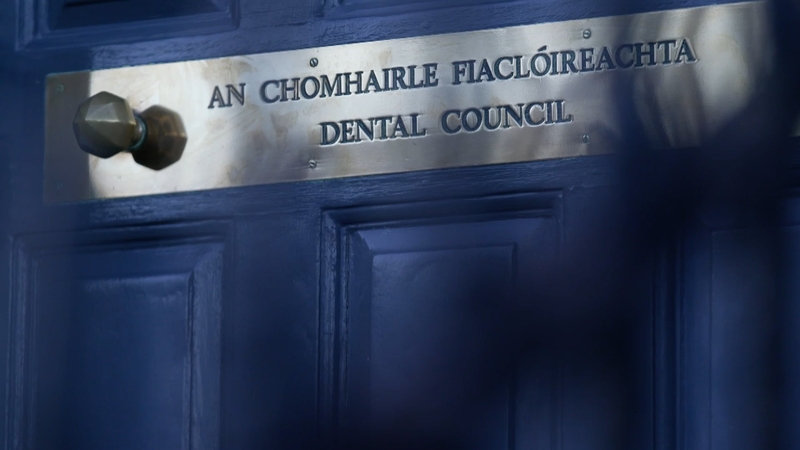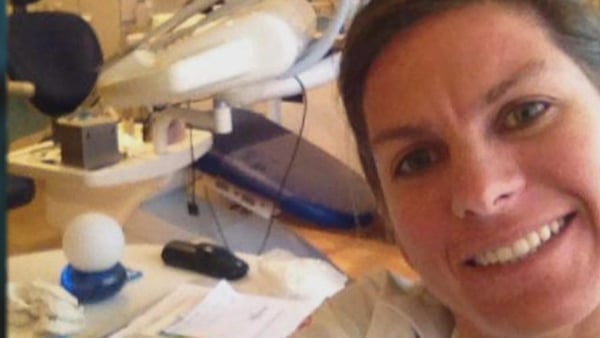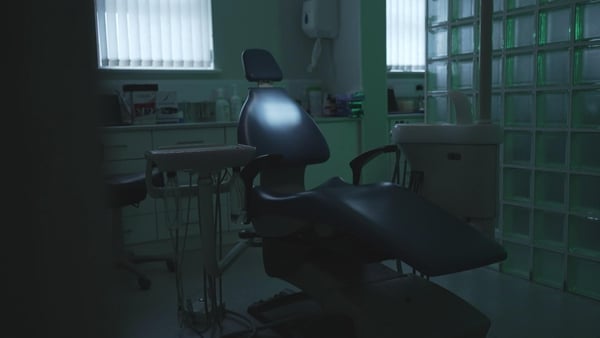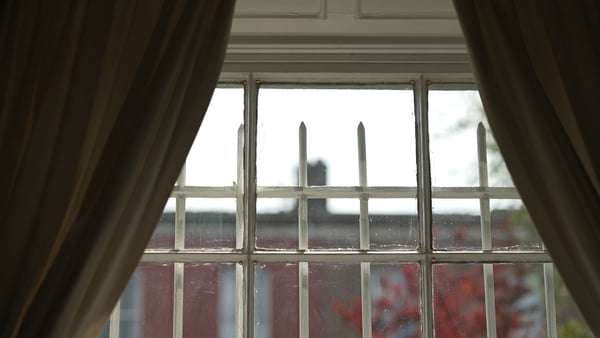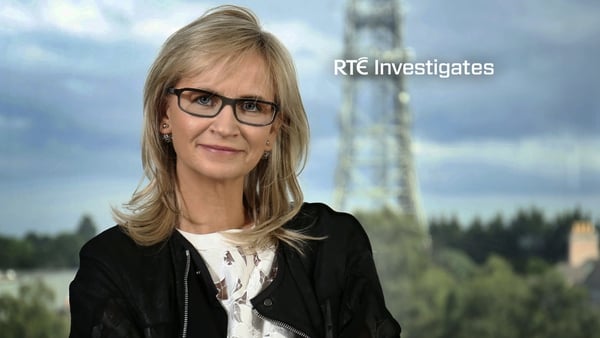The President of the Dental Council of Ireland has warned Government that patients are being placed at risk due to a lack of regulation of the practice of dentistry in Ireland, according to correspondence seen by RTÉ Investigates.
In a strongly-worded letter sent last month, Dr Gerry Cleary said he felt obliged to directly report the Council's serious concerns, saying the increasingly indefensible lack of legislative reform is forcing dentists to adopt positions that do not protect the public.
The Dental Council of Ireland has yet to receive a formal response to its correspondence.
Separately RTÉ Investigates has learned that in the last eight years the Dental Council has been unable to investigate 37 dentists working in Ireland who have been sanctioned in other jurisdictions.
In his letter Dr Cleary says the Council "must ignore" such cases "from a regulatory perspective" due to a lack of legislative powers.
He describes the legislation currently governing the dental sector in Ireland as "outdated, limited and often simplistic", adding the correspondence was necessary following several reports by RTÉ Investigates this year which highlighted how deficits in dental regulation have caused patient harm and distress.
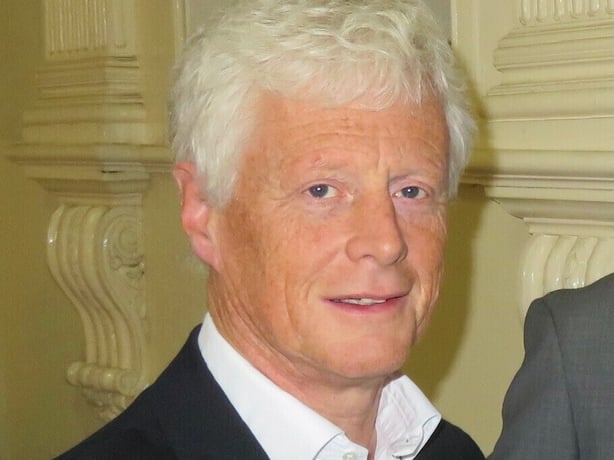
The reports included revelations by RTÉ in September last that several people have been practising dentistry here while unregistered – among them an unnamed individual with a conviction for sexual assault. Operating as a dentist without registering with the Dental Council of Ireland is a criminal offence.
At the time the Dental Council said despite being concerned, it has been unable to act because of a lack of inspection powers.
The Department of Health told RTÉ it remains committed to reforming the now nearly 40-year-old Dentists Act 1985, saying additional resources had been allocated to commence this work.
However, in his letter dated 5 October 2023 Dr Cleary takes issue with the Department’s statement.
"While the responses provided by the Department suggest that there is support at Government level for updating the Act, from our vantage point as the dental regulator, we are unable to reconcile this high-level and publicly repeated commitment with the lack of engagement to date."
Dr Cleary added that since the Council submitted a plan for legislative reform to the Department of Health in October 2021, it has had no response in over two years.
"Such lack of engagement would have been extremely disappointing if the Council had presented its submission to you outside of any particular context or national initiative. However, our submission was prepared at the express invitation of the Department, within a requested defined timeline."
The letter further brands remarks made by the Department of Health as potentially "misleading" saying insinuations that other agencies including the Environmental Protection Agency, the Health and Safety Authority and the HSE can inspect dental practices to prevent patients coming to risk or harm was inaccurate.
"This relatively recent narrative raised by the Department could be seen as being misleading… the remits held by the bodies cited by the Department are narrow in focus and intentionally so. None of the remits have been designed to regulate the practice of dentistry or to establish or investigate the illegal practice of dentistry," Dr Cleary added.

Dr Cleary’s letter also refers to attempts to amend the Dentists Act 1985 via the Regulated Professions (Health and Social Care) (Amendment) Act 2020. However, despite being signed into law in October 2020 the Dental Council maintains three years later none of the provisions relating to dentistry have been commenced. As a result, the Council says it is aware of dentists practicing in Ireland with sanctions from other countries that it is unable to address. That, Dr Cleary writes, poses "a potential risk to patients in Ireland".
In fact, since 2015 the Dental Council has been unable to investigate 37 dentists practicing in Ireland who have had sanctions or restrictions imposed on their work in other jurisdictions. Twelve of those notifications have been received by the Dental Council since the Regulated Professions (Health and Social Care) (Amendment) Act was signed into law in 2020. All 12 individuals continue to work in Ireland.
"Right now, the Dental Council has exactly the same powers as it had in 1985. This is important as the Dental Council is aware of a number of dentists who are practicing in Ireland right now who have sanctions or restrictions on their practice in other jurisdictions and it must ignore these from a regulatory perspective," a Dental Council spokesperson told RTÉ.
RTÉ Investigates has also become aware of several other cases of concern which have arisen in recent weeks. Among them are complaints received by the Dental Council about a Dublin-based clinic where concerns regarding infection prevention measures and standards at the practice are of such degree it merits inspection, but the Council says it has no power to do so.
Complaints have also been received about clinical governance standards at a branch of a chain of dental practices where there are concerns about upselling and patients potentially receiving more treatment than necessary. Again, the Council says had it the power to inspect, these concerns would have met the threshold for action.
The Dental Council has also received up a dozen complaints about the sudden closure of a large dental practice where patients with implants have been left without access to medical records and remedial treatment.
"The lack of a proper statutory code of conduct that would oblige a proper provision to be made to address such a potential situation can and will expose patients in these circumstances," the Dental Council spokesperson said.
The Dental Council of Ireland has also raised concern that dentistry is the only healthcare profession in Ireland where there is no legal requirement for individuals to complete continuing professional development.
"It is clearly not in the patient’s interest that dentists can walk out of dental school and over the course of a full and long career, never be asked to demonstrate to the regulator how he or she has been keeping their knowledge and skills current."
Other correspondence seen by RTÉ Investigates from the Dental Council refers to regulation in its sector being so weak that a cat getting its claws clipped at a vet has greater protection than a dental patient in Ireland.
In a statement the Department of Health stated it remains committed to reviewing the Dentists Act 1985 saying it "is considering the necessary timelines required to deliver a robust, evidence-based modern regulatory framework".
As part of that work, the Department said it is considering the Dental Council’s submission for reform made two years ago.
In relation to the commencement of the Regulated Professions (Health and Social Care) (Amendment) Act 2020, the Department stated it is being approached "in a phased way as the complex amendments being brought about by the Act involve a very significant body of work for each of the health professional regulators".
The Department did acknowledge a request for partial commencement of the Act was received from the Dental Council in early 2022 but it says "certain post-enactment legal matters" have delayed this. It expects those matters will be resolved in the short term with the Department committing to finalising commencement of the Act in the near future.
Until then, Dr Cleary’s letter states the public will continue to be at risk with the need for legislative change becoming "increasingly indefensible."
"It is very much the view of the Dental Council that regulatory reform should be approached urgently, constructively and collaboratively without being triggered by patient harm and distress, or by adverse media coverage."
